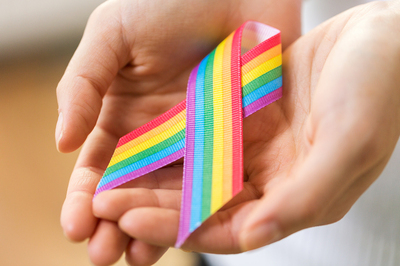
LGBT community members experience many stresses. In the case of addicts, protecting their health and wellness often means addressing co-occurring conditions.
Addiction is a struggle for anyone. Factor in the reality of co-occurring disorders (COD) and the challenges grow. While co-occurring mental illness is common among all addicts, it’s especially prevalent in the LGBT community. Here’s a closer look at the phenomenon, along with how finding a qualified addiction treatment program can make all the difference.
LGBT community members experience many stresses. In the case of addicts, protecting their health and wellness often means addressing co-occurring conditions.
About Co-Occurring Disorders
“The term co-occurring disorder replaces the terms dual disorder and dual diagnosis when referring to an individual who has a co-existing mental illness and a substance use disorder. While commonly used to refer to the combination of substance use and mental disorders, the term also refers to other combinations of disorders (such as mental disorders and intellectual disability),” says Psychology Today.
Not only do people with CODs usually have one or more disorders related to drugs and alcohol, at least one or more mental disorders are also typically present. Combinations may involve substance variables such as cocaine, alcohol, and poly-drug use paired with depression, panic disorder, schizophrenia, and borderline personality disorder. Continues Psychology Today, “Thus, there is no single combination of co-occurring disorders; in fact, there is great variability among them.”
Even more alarming is that people with co-occurring disorders often have more severe medical, social, and emotional problems than their peers who suffer from single disorders. They’re also more vulnerable to relapse, which in turn can lead to the exacerbation of psychiatric problems, creating a vicious cycle.
LGBT Addiction and Co-Occurring Disorders
While substance abuse is multi-factored, one of the common causes is stress. Continued stress may also trigger mental illness and depression. Unfortunately, members of the LGBT community are more likely than their heterosexual counterparts to experience stress. In fact, according to data from the Center for American Progress, as much as 30 percent of LGBT people may abuse substances, compared to roughly nine percent of the general population.
A similar pattern exists pertaining to mental health. LGBTQ people are nearly three times more likely to experience mental health conditions than heterosexuals. The result can be a “perfect storm” of co-occurring disorders — one meriting special attention in treatment. Asserts Psychology Today, “Relapse prevention must be specifically designed for the unique needs of people with co-occurring disorders. Compared to patients who have a single disorder, patients with co-existing conditions often require longer treatment, have more crises, and progress more gradually in treatment.”

Recovery is possible for LGBT substance abusers, but targeted treatment is often the key.
Supporting Recovery for LGBT Substance Abusers
This begs the question, what, specifically, makes one substance abuse program more suitable than another for LGBT substance abusers? Proposes the National Alliance on Mental Illness (NAMI), “LGBTQ people must confront stigma and prejudice based on their sexual orientation or gender identity while also dealing with the societal bias against mental health conditions. Some people report having to hide their sexual orientation from those in the mental health system for fear of being ridiculed or rejected. Some hide their mental health conditions from their LGBTQ friends.”
Focused addiction treatment is exactly what LGBT individuals will find waiting at Harris House. At this leading St. Louis drug rehab program, LGBT individuals gain access to targeted care aimed at addressing the underlying causes of substance abuse, mental health conditions, and co-occurring disorders in order to facilitate recovery. Contact us to learn more about our LGBT substance abuse treatment programs today.







